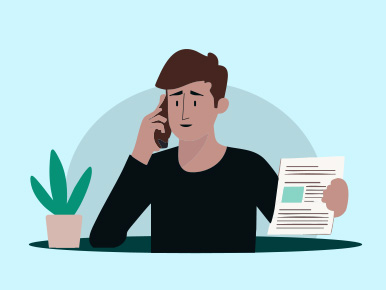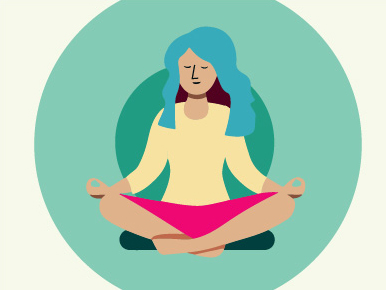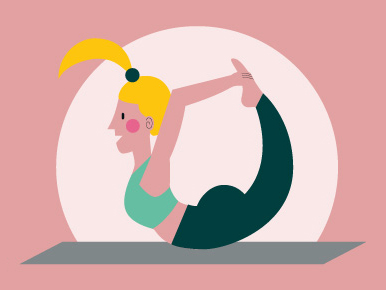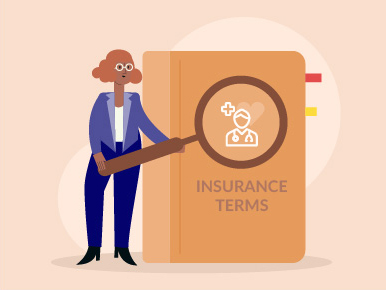We all know how vital a good night's sleep is: there are simply too many health benefits to mention. Sure, some people are born sleepers - (pun alert!) they can do it with their eyes closed. Others, though, not so much.
But just because you're one of those who count sheep almost every night, that doesn't mean you can't improve your sleeping habits. To inspire you and motivate you, here's a day in the life of John*, a good sleeper.
Kicking off the day
It may sound counter-intuitive, but a good sleep routine starts when the alarm goes off in the morning. To kick off the day on the right foot, John makes a point to wake up at the same time every day, including on weekends: 6.30 am, to be exact. No snoozing, as he's discovered that it just makes him more tired.
Around 7 am, John leaps out the bed and takes his early morning fix of sunlight - be it a walk around the block, a little run to get the blood flowing, or even just sitting near the window for 10-15 minutes, the sun's rays are just what John's body needs to regulate his sleep/wake cycle.
Now, there's just one thing he needs to do before leaving for work: breakfast is served, the perfect balance of carbs, proteins and fruit to fuel his day. Coffee? Most days - after all, simple pleasures are part of a good life - but never after 2 pm.
At work
John usually gets the most important tasks done early, when he's at peak energy. As his job entails long hours in front of the computer, he gives his eyes a break from time to time and takes short walks around the office to stretch his legs out.
He's also learned some easy stress management techniques, like breathing exercises. It not only helps him stay calm under pressure, but his sleeping patterns have improved as well.
Come time to clock out, he may either head directly home or to the gym for some mild training - which also helps him sleep better. According to research, people who engage in 30 minutes of moderate-intensity exercise fall asleep faster and sleep on average 30 minutes longer than their sedentary counterparts.
Back home
It's important for John to unwind from work. His motto? "What happens at work stays at work." As soon as he walks through the door of his house, John shifts gears. First thing first, he changes into comfy clothes (or, as John proudly refers to it, his "home attire").
Dinner is usually his lightest meal of the day (some protein, carbs, and healthy fats to help maintain balanced blood sugar levels through the night), and he always eats it at least two or three hours before going to bed.
The same goes for sugar and fluids (especially alcohol). Throughout the day John drinks plenty of water, but he tries not to drink large volumes of it two or three hours before bedtime.
Bedtime routine
Around 8.30 pm, John begins to wind down for the night. He dims the lights after dinner: this helps signal to his brain that he needs to start producing melatonin, the sleep-inducing hormone. Then, one by one, he switches off from all screens - his computer, then his phone, and lastly his TV. Again, it's all about melatonin: backlit electronic devices are oozing with blue light, which can be extremely disruptive for this hormone.
Once his 'digital sunset' is complete, John has a bit more time to relax and clear his mind. Tonight, he feels like having a big stretch, followed by a five-minute meditation. But first, he takes a warm shower to wash away the day. The point is to build a repetition so that at the end of the routine, it's time to sleep.
Time to call it a day
John might be a great sleeper now, but it hasn't always been the case: his average used to be six hours a night, just like most people. Then, he's tried a technique called 'sleep scheduling'. Basically, for two weeks, he went to bed a bit later than usual. Then, each morning he got up at 6 am sharp. This method has helped teach his body an important lesson - the bed is for sleeping.
In time, he has developed a healthy sleep routine. He goes to bed at the same time each night (10.30 pm), and wakes up at the same time each morning (6.30 am), on both weekdays and weekends. Of course, there may be slight variations to this schedule: life is made to enjoy, right? But even when he's had a long night, he tries to avoid having a long sleep-in. Fun fact: did you know that sleeping in can put your body into jetlag mode?
And then, there are nights when - no matter what - falling asleep just doesn't happen easily, or he wakes up in the middle of the night. John has learned that there's no point trying too hard. If he hasn't fallen asleep within about 30 minutes, he may get out of bed, resisting the temptation to turn on the lights. He then walks to a different room, or does something relaxing to distract the mind for a few minutes.
To quiet his mind and induce sleep, he may listen to relaxing music, do breathing exercises or read a book - anything except for checking his phone or staring at the clock. That's when his inner thoughts slowly drift away, and his mind becomes as silent and calm as a lake. And before he knows it, he's asleep again.
* Do you know John?
As you probably have guessed, John doesn't exist - or does he? You may know someone who is a fantastic sleeper, and perhaps, you've always wanted to learn their secrets.
The reality is, there is no secret: what works for John may not necessarily work for you. The important thing is to find what works for you. And luckily, there's a lot of information available out there - including on most insurers' websites.
When researching for this article, Accuro's sleep routine checklist provided some great starting points. AIA's sleep tips can also come in quite handy if you're planning to have a great sleep tonight (and the next, and the one after that...). And if you're a fan of infographics, this guide to a good night's sleep may be your cup of tea.
After all this talk about sleeping well, you might also like to know why we sleep : as AIA points out here, "we spend almost one-third of our lives doing something we hardly understand." On this note, this article by Asteron Life talks about three sleep myths that you may have already come across.
For more out-of-the-box advice, we can recommend these seven tips from Southern Cross. Our favourite? "She'll be right: while there's always going to be the odd sleepless night, don't stress out about it."
If it's your children you're trying to help, nib has the guide for you here . And lastly, don't forget that technology can be your friend: in this piece by chubb-life , you'll find some handy sleep apps and tools to try.
Not sure which option is most appropriate for you? Give our friendly insurance advisers a call on 0800 800 400 or send us a message.
Disclaimer: Please note that the content provided in this article is intended as an overview and as general information only. While care is taken to ensure accuracy and reliability, the information provided is subject to continuous change and may not reflect current developments or address your situation. Before making any decisions based on the information provided in this article, please use your discretion and seek independent guidance.











